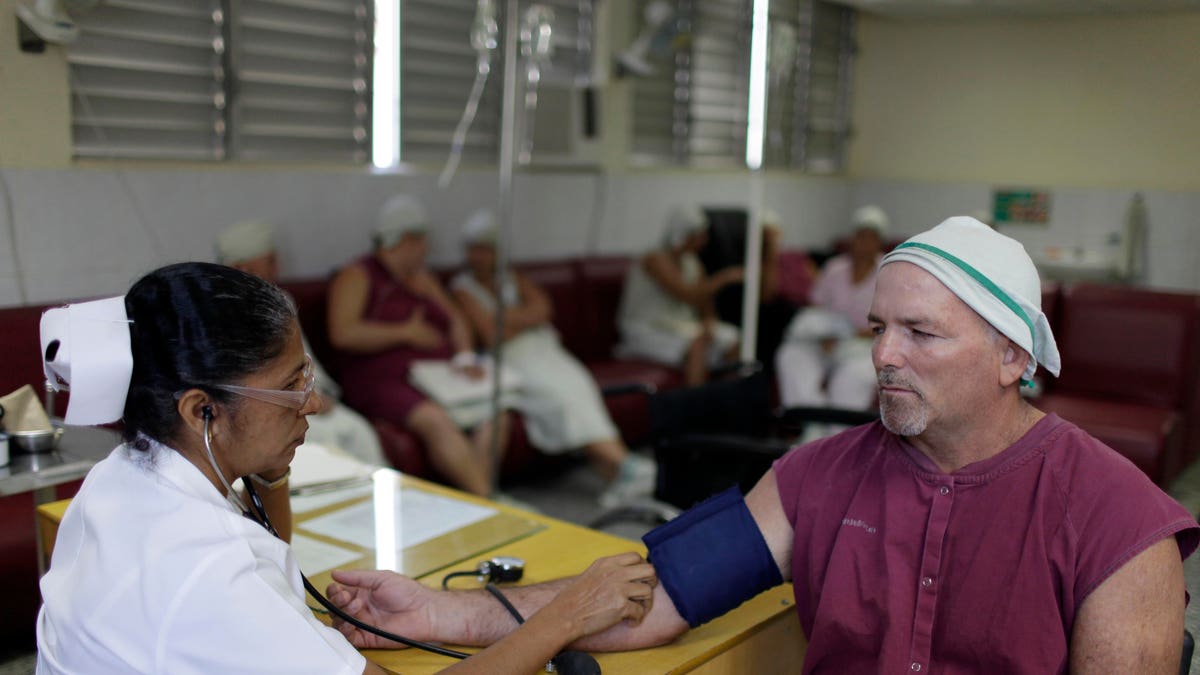
Feb 8, 2013 - A nurse checks a patient's blood pressure at the Dr. Gustavo Lima Aldereguía Hospital in Cienfuegos, Cuba. Cuba is giving its hundreds of thousands of medical workers raises that in some cases exceed 100 percent, official media on the island announced Friday. (AP)
HAVANA – Cuba is giving hundreds of thousands of medical workers raises that in some cases exceed 100 percent, official media on the island announced Friday, though pay remains much lower than what medical professionals earn elsewhere.
The Communist Party daily newspaper Granma also reported that Cuba expects to take in $8.2 billion this year for the tens of thousands of medical workers it sends to care for the poor in countries such as Venezuela and Brazil.
Granma published a sample of what the pay hikes, which take effect June 1, will look like. At the high end, doctors with two specialties will see their salary go from the equivalent of $26 a month to $67, while an entry-level nurse will make $25, up from $13.
Salaries at government jobs in Cuba average about $20 a month, augmented by a range of free services and subsidies.
The raise will affect more than 440,000 medical sector employees, Granma said, and was made possible by the elimination of 109,000 redundant jobs in the last four years.
"This is very good news that makes me tremendously happy. ... With my first paycheck I'm going to buy a toy for my youngest grandson, who's 3," said Soraida Pina, a 62-year-old nurse. "This will open new doors for me."
Others were less wowed.
"They had talked to us about this, and it's very important for the family economy, but it continues to be a salary that means very little because everything is very expensive," said Laura Vazquez, a 38-year-old pathologist.
Cuba also is raising the salaries of medical workers on international missions, which already pay higher salaries and in hard currency.
Doctors and nurses working in Cuban ally Venezuela, for example, will see their salaries double.
The changes "will contribute to the stability and quality of the medical services for the people, as well as fulfill international commitments," Granma said.
The paper added that the forecast revenue from overseas medical missions for 2014 represents 64 percent of income from the services sector.
Health Minister Roberto Morales said recently that more than 50,000 Cuban health care professionals are working in some 66 nations.
That includes an estimated 30,000 in Venezuela, which sends Cuba some 92,000 barrels of oil a day, with a total value of about $3.2 billion a year.
Cuba has not made public how much it pays doctors on foreign missions, though it is believed to be a small fraction of what it collects from the nations where they serve.
Some doctors defect while abroad, though there are no official statistics on how many.







































